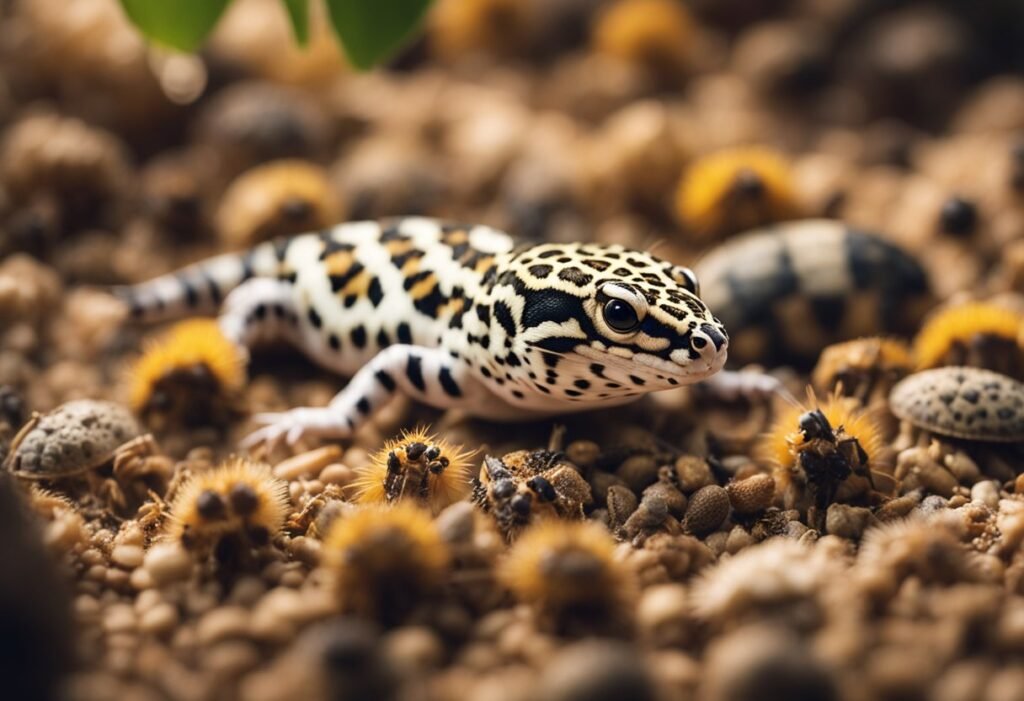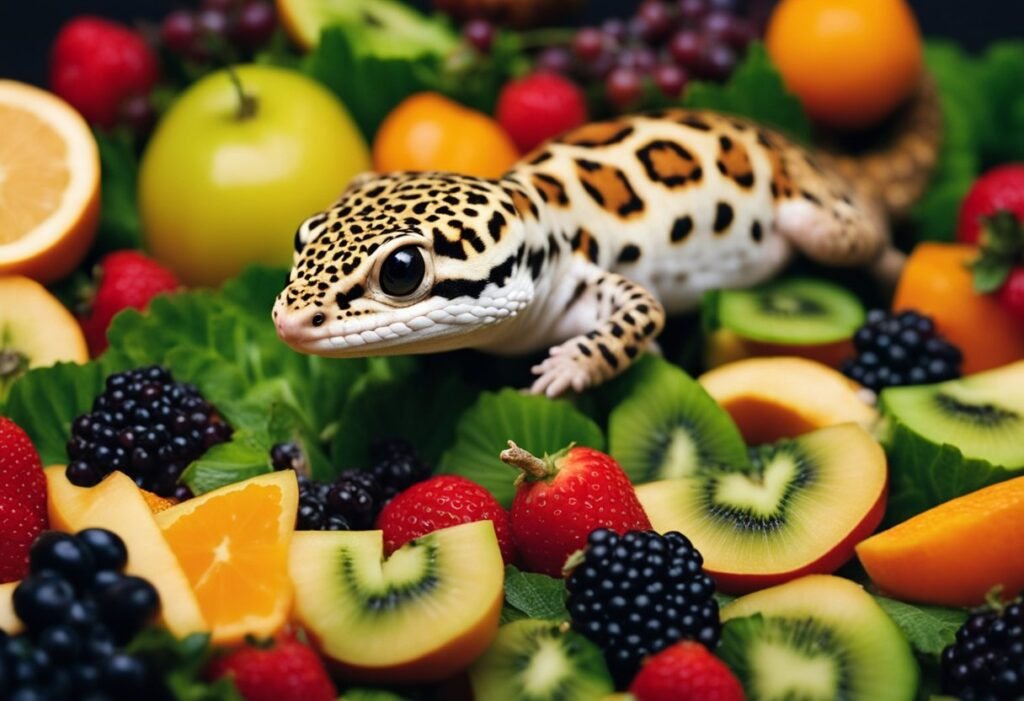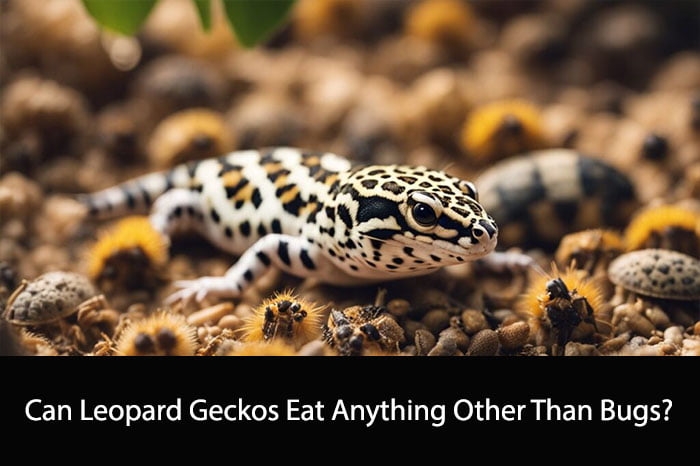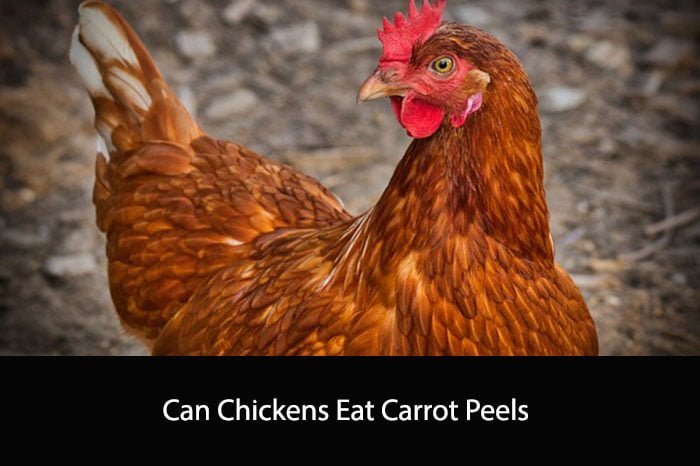Leopard geckos are fascinating creatures that make great pets. One question that many people have when it comes to caring for their leopard gecko is what they can and cannot eat. While it is well-known that leopard geckos primarily eat insects, many people wonder if they can eat anything else.
The short answer is no, leopard geckos cannot eat anything other than bugs. Insects provide all the necessary nutrients, vitamins, and minerals that these reptiles need to thrive. However, it is important to note that not all insects are created equal. Some insects are better for leopard geckos than others, and it is essential to choose the right ones to ensure your pet’s health and well-being. In this article, we will explore the reasons why leopard geckos cannot eat anything other than bugs and provide some tips on choosing the best insects for your pet.
Dietary Basics of Leopard Geckos

Leopard geckos are insectivores, meaning they primarily eat insects. However, they can also eat other types of food, but it’s important to ensure that their nutritional requirements are met. In this section, we will discuss the nutritional requirements and common insect diet of leopard geckos.
Nutritional Requirements
Leopard geckos require a balanced diet that is high in protein and low in fat. They also need a source of calcium and vitamin D3 to maintain healthy bones. It’s important to provide a variety of insects to ensure that they receive all the necessary nutrients.
Here is a table of the nutritional content of some common insects:
| Insect | Protein (%) | Fat (%) | Calcium (mg/100g) | Phosphorus (mg/100g) |
|---|---|---|---|---|
| Crickets | 21 | 6 | 75 | 220 |
| Mealworms | 20 | 13 | 100 | 250 |
| Dubia roaches | 36 | 13 | 205 | 240 |
Common Insect Diet
Leopard geckos commonly eat crickets, mealworms, and dubia roaches. It’s important to gut-load the insects before feeding them to the gecko. Gut-loading involves feeding the insects a nutritious diet before feeding them to the gecko to ensure that the gecko receives all the necessary nutrients.
In addition to insects, leopard geckos can also eat pinkie mice, but it should only be given as an occasional treat. It’s important to note that leopard geckos cannot digest fruits and vegetables, so they should not be included in their diet.
Overall, a balanced diet of insects and occasional pinkie mice can meet the nutritional requirements of leopard geckos. It’s important to provide a variety of insects and ensure that they are gut-loaded to maintain the gecko’s health.
Safe Foods Beyond Insects

Leopard geckos are known for their love of insects, but they can also safely consume other types of foods. In this section, we will explore some safe foods beyond insects that can be incorporated into your leopard gecko’s diet.
Occasional Treats
While insects should make up the majority of your leopard gecko’s diet, occasional treats can be given in moderation. Some safe options for treats include:
- Pinky mice: These are newborn mice that have not yet grown fur. They are a good source of protein and can be given as an occasional treat. However, they should not be fed too often as they are high in fat.
- Waxworms: These are the larvae of wax moths and are high in fat. They should only be given as an occasional treat as part of a balanced diet.
- Mealworms: These are a common feeder insect for leopard geckos, but they should only be given as a treat as they are high in chitin, which can be difficult for leopard geckos to digest.
Supplementation and Vitamins
Leopard geckos require a balanced diet to maintain their health. While insects are a good source of nutrition, they may not provide all the necessary vitamins and minerals. To ensure your leopard gecko is getting all the nutrients they need, consider incorporating the following into their diet:
- Calcium powder: This can be dusted onto feeder insects to provide calcium, which is important for bone health.
- Vitamin D3: This can be added to your leopard gecko’s diet to aid in the absorption of calcium.
- Gut-loading: This involves feeding your feeder insects a nutritious diet before feeding them to your leopard gecko. This can help ensure your leopard gecko is getting a balanced diet.
In conclusion, while insects should make up the majority of your leopard gecko’s diet, occasional treats and supplementation can be incorporated to ensure they are getting all the necessary nutrients. Always research and consult with a veterinarian to ensure you are providing a balanced and safe diet for your leopard gecko.
Foods to Avoid for Leopard Geckos
As responsible pet owners, we must ensure that our leopard geckos have a healthy and balanced diet. While leopard geckos are primarily insectivores, there are certain foods that are harmful to them and should be avoided. In this section, we will discuss some of the foods that leopard geckos should not be fed.
Harmful Foods
Leopard geckos should not be fed any food that is high in fat or sugar. Foods such as chocolate, candy, and junk food should be avoided at all costs. These foods can cause obesity, diabetes, and other health problems in leopard geckos.
Leopard geckos should also not be fed any food that is too large for them to swallow. This can cause choking and other digestive problems. It is important to always cut up food into small pieces that are easy for leopard geckos to eat.
Toxic Plants and Insects

Leopard geckos should not be fed any toxic plants or insects. Some of the common plants that are toxic to leopard geckos include daffodils, lilies, and tulips. Insects such as fireflies and ladybugs should also be avoided as they are toxic to leopard geckos.
It is important to research and identify any plants or insects before feeding them to your leopard gecko. If you are unsure about a particular food item, it is best to err on the side of caution and avoid feeding it to your leopard gecko.
In conclusion, leopard geckos require a balanced and healthy diet to thrive. By avoiding harmful foods and toxic plants and insects, we can ensure that our leopard geckos stay healthy and happy.
Feeding Techniques
When it comes to feeding leopard geckos, live prey is the most common and recommended option. However, there are some other options that can be considered. In this section, we will explore different feeding techniques to provide a balanced diet for our leopard geckos.
Live Prey Feeding
Live prey is the most natural way for leopard geckos to get their nutrition. It is recommended to feed them insects such as crickets, mealworms, and waxworms. These insects can be purchased at a pet store or bred at home. When feeding live prey, it is important to make sure that the insects are the appropriate size for the leopard gecko. The insects should be no larger than the width of the gecko’s head to prevent choking.
Meal Variety and Schedule
Leopard geckos require a variety of nutrients to stay healthy. It is important to offer a variety of insects to ensure that they are getting all the necessary nutrients. We recommend offering a variety of insects such as crickets, mealworms, waxworms, and superworms. It is also important to vary the diet by offering different insects on different days. This will prevent the gecko from getting bored with their food and ensure that they are getting a balanced diet.
We also recommend feeding leopard geckos in the evening or at night as they are nocturnal animals. They should be fed every other day as adults and every day as juveniles. Overfeeding can lead to obesity and other health issues, so it is important to stick to a regular feeding schedule.
In conclusion, while live prey is the most common and recommended option for feeding leopard geckos, there are other options to consider. Varying the diet with different insects and feeding on a regular schedule can help ensure that our leopard geckos stay healthy and happy.
Health Implications of Diet
When it comes to the diet of leopard geckos, it is important to consider the health implications of their food choices. In this section, we will discuss two important aspects of diet that can affect the health of leopard geckos: obesity and underfeeding, and metabolic bone disease prevention.
Obesity and Underfeeding
Leopard geckos are prone to obesity, which can lead to a variety of health problems such as fatty liver disease and heart disease. It is important to feed them an appropriate amount of food to prevent overfeeding. Overfeeding can also lead to uneaten food, which can attract insects and other pests to the enclosure.
On the other hand, underfeeding can also be problematic. If leopard geckos do not receive enough food, they can become malnourished and develop health problems. It is important to provide them with a balanced diet that meets their nutritional needs.
Metabolic Bone Disease Prevention
Metabolic bone disease is a common health problem in leopard geckos, which can be caused by a lack of calcium and vitamin D3 in their diet. This can lead to weak bones, deformities, and even death.
To prevent metabolic bone disease, it is important to provide leopard geckos with a diet that is high in calcium and vitamin D3. This can be achieved by feeding them a variety of insects that have been dusted with calcium and vitamin D3 supplements.
In conclusion, the diet of leopard geckos can have a significant impact on their health. It is important to provide them with a balanced diet that meets their nutritional needs and prevents health problems such as obesity and metabolic bone disease.
Frequently Asked Questions

What is the best diet for a captive leopard gecko?
Leopard geckos are insectivores, which means their diet should consist primarily of insects. The best diet for a captive leopard gecko is a variety of appropriately-sized insects, such as crickets, mealworms, and dubia roaches. It is also important to dust the insects with calcium and vitamin D3 supplements to ensure proper nutrition.
Is it safe for leopard geckos to consume flies as part of their diet?
While flies may be a natural part of a leopard gecko’s diet in the wild, they are not recommended as a regular food source for captive leopard geckos. Flies can carry parasites and diseases that can be harmful to your gecko.
Can leopard geckos be fed dead insects, such as crickets?
Yes, leopard geckos can be fed dead insects, such as crickets, as long as the insects are fresh and have not been treated with any chemicals or pesticides. It is important to remove any uneaten insects from the enclosure to prevent them from rotting and causing health issues.
Are mealworms a suitable food choice for leopard geckos?
Mealworms can be a suitable food choice for leopard geckos, but they should not be the only food source. Mealworms have a high fat content and can lead to obesity and other health problems if fed in excess. It is important to offer a variety of insects to ensure a balanced diet.
What are the dietary restrictions for leopard geckos regarding vegetables and fruits?
Leopard geckos are not able to digest vegetables and fruits properly and should not be a part of their diet. Feeding these foods can lead to digestive issues and other health problems.
Which insects should be avoided when feeding a leopard gecko?
Leopard geckos should not be fed insects that are too large or too hard to digest, such as superworms or beetles. Insects that are caught in the wild should also be avoided, as they can carry parasites and diseases. It is important to only feed your gecko insects that have been specifically bred for reptile consumption.





